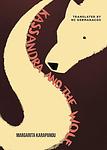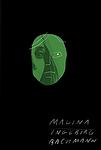The Greatest Greek, Austrian "Experimental" Books of All Time
Click to learn how this list is calculated.
This list represents a comprehensive and trusted collection of the greatest books. Developed through a specialized algorithm, it brings together 305 'best of' book lists to form a definitive guide to the world's most acclaimed books. For those interested in how these books are chosen, additional details can be found on the rankings page.
Genres
The "Experimental" category of books is characterized by works that challenge traditional literary conventions and push the boundaries of form and content. These books often incorporate unconventional narrative structures, language, and themes, and may experiment with different mediums such as poetry, visual art, or multimedia. The goal of experimental literature is to create new and innovative ways of storytelling that challenge readers' expectations and expand the possibilities of what literature can be.
Countries
Date Range
Reading Statistics
Click the button below to see how many of these books you've read!
Download
If you're interested in downloading this list as a CSV file for use in a spreadsheet application, you can easily do so by clicking the button below. Please note that to ensure a manageable file size and faster download, the CSV will include details for only the first 500 books.
Download-
1. The Man Without Qualities by Robert Musil
"The Man Without Qualities" is a satirical novel set in Vienna during the last days of the Austro-Hungarian Empire. It follows the life of Ulrich, a thirty-two-year-old mathematician, who is in search of a sense of life and reality but is caught up in the societal changes and political chaos of his time. The book explores themes of existentialism, morality, and the search for meaning in a rapidly changing world.
The 144th Greatest Book of All Time -
2. Death of Virgil by Hermann Broch
The novel explores the final hours of the Roman poet Virgil, who, while on his deathbed, contemplates the value and impact of his life's work, particularly his unfinished epic, the Aeneid. The narrative is a complex, stream-of-consciousness meditation on art, life, and death, with Virgil wrestling with his desire to burn his epic and the emperor's command to preserve it. The book delves into themes of the meaning of human existence, the role of art in society, and the clash between the individual's inner world and the external world.
The 348th Greatest Book of All Time -
3. The Sleepwalkers by Hermann Broch
"The Sleepwalkers" is a trilogy that explores the psychological transformation and moral decay of German society between 1888 and 1918. The narrative follows three main characters: Joachim von Pasenow, a romantic military officer; August Esch, a pragmatic bookkeeper; and Claus von Pasenow, an intellectual and World War I soldier. The book uses these characters to depict the shift from a stable, traditional society to a modern, aimless one, examining the individual's struggle with societal change and the disintegration of values.
The 877th Greatest Book of All Time -
4. Correction by Thomas Bernhard
"Correction" is a complex narrative revolving around the life of a man named Roithamer, a genius obsessed with constructing an architectural masterpiece, the Cone, in the center of the Kobernausser forest. The story is told through the perspective of his friend who is reading Roithamer's notes after his suicide. The novel explores themes of obsession, isolation, and the pursuit of perfection, while also delving into the protagonist's troubled relationships with his family and society.
The 1031st Greatest Book of All Time -
5. Concrete by Thomas Bernhard
The book is a darkly introspective narrative that delves into the mind of a reclusive, obsessive intellectual who is struggling to complete his scholarly work on the composer Mendelssohn. As he grapples with his own ailments and the perceived mediocrity of his surroundings, the protagonist's stream-of-consciousness monologue reveals his deep-seated anxieties, self-loathing, and profound isolation. The narrative is a relentless examination of the protagonist's psyche, showcasing his critical view of society and his own personal relationships, which are fraught with tension and dysfunction. Through this, the novel explores themes of artistic creation, intellectual elitism, and the suffocating nature of expectations and familial obligations.
The 1733rd Greatest Book of All Time -
6. Ενδοχωρα by Andreas Embiricos
The book is a groundbreaking work of surrealism that delves into the depths of human consciousness and the complexities of desire. Through a series of dreamlike narratives and erotic adventures, it explores the boundaries of reality and imagination, challenging conventional norms and societal taboos. The narrative weaves through various dimensions of time and space, presenting a kaleidoscopic view of human experience. Rich in symbolism and characterized by its bold, imaginative prose, this literary piece is a significant contribution to modernist literature, reflecting the author's fascination with the unconscious mind and the liberating potential of sexual liberation.
The 3791st Greatest Book of All Time -
7. Υψικαμινος by Andreas Embiricos
"Υψικαμινος" is a groundbreaking work of modernist literature that delves into the depths of human consciousness and the complexities of sexual desire. Through a series of vivid, often surreal vignettes, the narrative explores the inner lives of its characters, weaving together themes of freedom, existential despair, and the search for meaning. The author employs a rich, poetic language and a non-linear structure to challenge traditional narrative forms and to invite readers into a world where the boundaries between reality and imagination blur. This novel stands as a bold experiment in literary form and a profound inquiry into the human psyche and the nature of eroticism.
The 3791st Greatest Book of All Time -
8. Kassandra And The Wolf by Margarita Karapanou
This novel presents a surreal and disturbing journey through the eyes of a six-year-old girl named Kassandra. Through fragmented, dreamlike episodes, the narrative delves into her experiences of violence, sexuality, and the complexities of her inner world. The story oscillates between reality and fantasy, revealing the dark and often perplexing aspects of childhood and the process of coming of age. The protagonist's interactions with her surroundings and the people in her life are depicted with a stark, unsettling vividness, challenging the reader's perceptions of innocence and the nature of reality itself. This work is a provocative exploration of the darker sides of human nature and the intricacies of a child's imagination.
The 3791st Greatest Book of All Time -
9. Ο Πεθαμένος και η Ανάσταση by Nikos-Gabriel Pentzikis
This book weaves a complex narrative that delves into the spiritual and existential journey of its characters, set against the backdrop of Greece's tumultuous historical and cultural landscape. Through a blend of myth, religion, and modern existential thought, the story explores themes of death, resurrection, and the search for meaning in a changing world. The author's rich, poetic language and use of symbolism draw readers into a meditation on the nature of existence, the power of faith, and the eternal cycle of life and death, inviting them to reflect on their own beliefs and experiences in the light of the characters' struggles and revelations.
The 3791st Greatest Book of All Time -
10. The Loser by Thomas Bernhard
"The Loser" is a philosophical novel that revolves around the complex relationship between three friends who are all piano virtuosos. The narrative is driven by the protagonist's obsession with his friend's suicide, which he believes was triggered by the realization that they could never surpass the genius of their third friend. The book delves into the protagonist's psyche as he grapples with themes of talent, ambition, failure, and the destructive power of comparison.
The 5720th Greatest Book of All Time -
11. Malina by Ingeborg Bachmann
This novel delves into the complex inner world of a female protagonist living in Vienna, who is torn between two contrasting loves: one with a passionate, consuming lover, Ivan, and the other with a figure named Malina, embodying stability and intellectual companionship. Set against a backdrop of post-war Austria, the narrative explores themes of identity, gender, and the trauma of history, all while blurring the lines between reality and the protagonist's psychological disintegration. The protagonist's struggle for self-definition and coherence in a fragmented world is central to the story, culminating in a haunting and ambiguous conclusion that challenges the boundaries of narrative and self.
The 9875th Greatest Book of All Time
Reading Statistics
Click the button below to see how many of these books you've read!
Download
If you're interested in downloading this list as a CSV file for use in a spreadsheet application, you can easily do so by clicking the button below. Please note that to ensure a manageable file size and faster download, the CSV will include details for only the first 500 books.
Download







